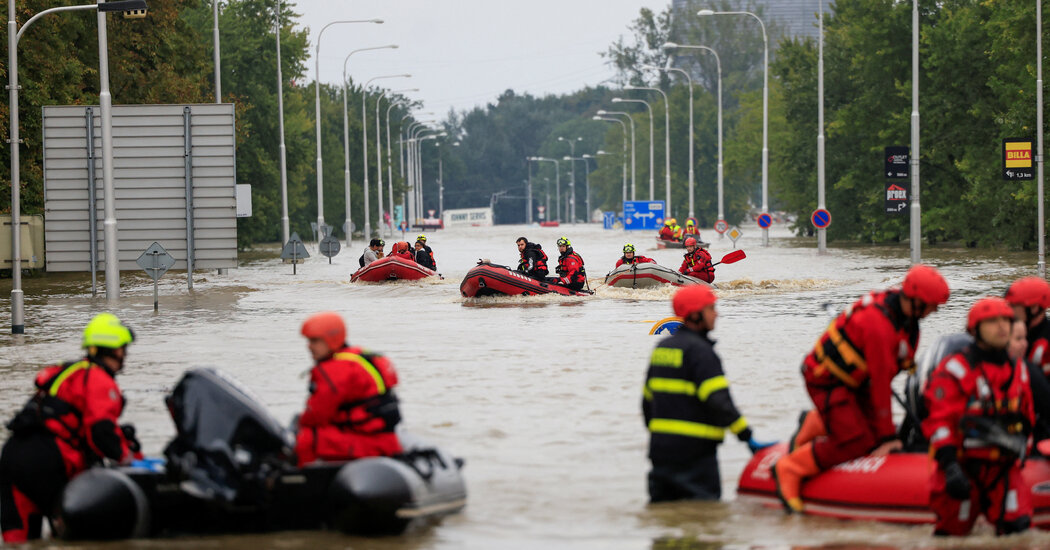Climate change is influencing extreme weather events like the flooding across six European countries that has led to mass evacuations of cities as the waters continue to rise.
Floodwaters surged across Central Europe this week, inundating entire towns and transit systems with a rippling layer of murky brown water.
More than 20 people have been killed by flooding across Romania, Poland, the Czech Republic and Austria, with many others missing in the days since heavy rainfall began last Thursday. Thousands more, including people in Hungary and Slovakia, have been displaced. On Monday night, the mayor of a Polish town asked 42,000 residents to evacuate ahead of continued rainfall.
“These floods are a clear reminder of the growing threat of climate-induced extreme weather events,” said Sissi Knispel de Acosta, the general secretary of the European Climate Research Alliance, which is made up of research groups that study global warming.
The record rains are part of a slow-moving, low-pressure system called Storm Boris that has dumped five times September’s average rainfall over four days.
The weather system was fueled by a blast of Arctic air that moved in from the north, causing temperatures to plummet within 24 hours. While it’s not unprecedented for a polar blast to hit Europe in late summer, it could become more likely to happen in the future under a changing climate, said Richard Rood, a climatologist at the University of Michigan.
That cold air collided with warmer air from the south that was dense with water vapor. The overloaded moisture came from an unusually warm Mediterranean Sea that hit the highest temperature ever recorded last month.
